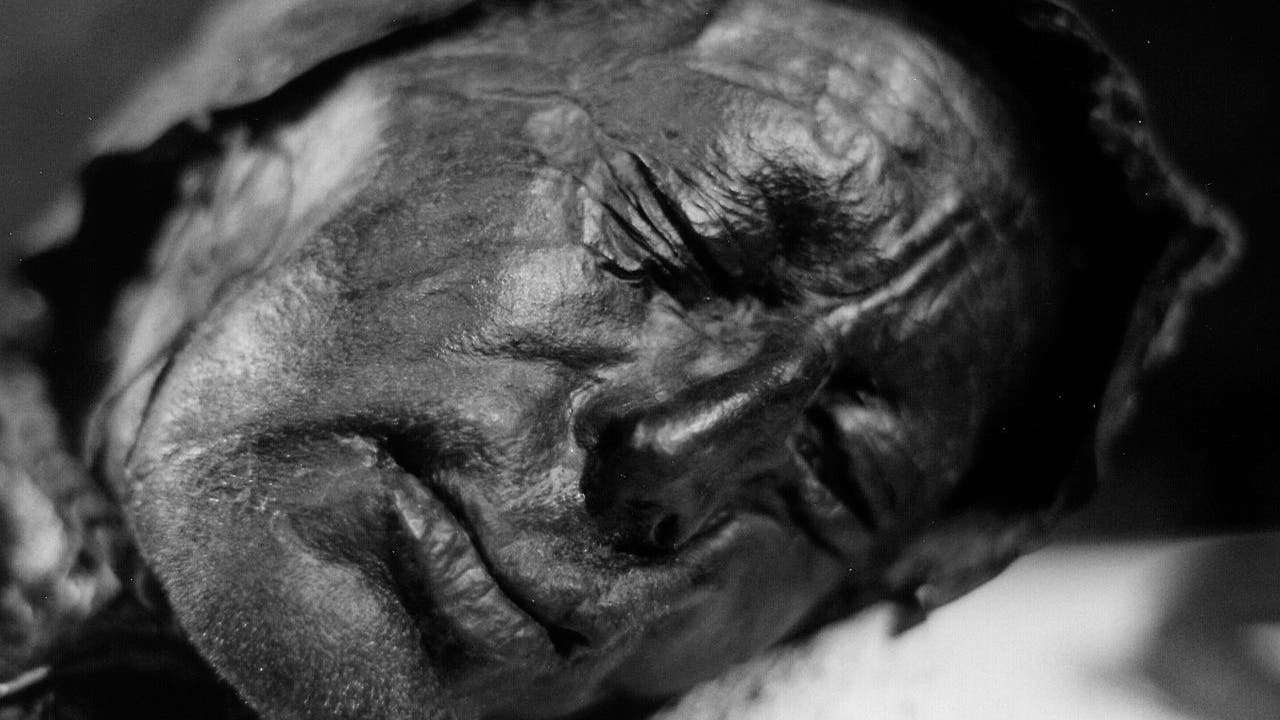Rare orange-eyed owl spotted for the first time in more than 125 years

For the first time since its discovery more than 125 years ago, scientists have documented the Bornean subspecies of the Rajah Scops-Owl in the montane forest of Malaysia’s Mount Kinabalu.
Researchers from the Smithsonian Migratory Bird Center announced their rediscovery of the orange-eyed bird last month in the Wilson Journal of Ornithology, including the first photographs of it in the wild.
OHIO FALCONERS CAN USE OWLS FOR HUNTING, NEW LAW SAYS
In their report’s Abstract, the ecologists noted that while almost all of the basic elements of the species’ ecology are unknown – like vocalizations, distribution, breeding biology, and population size – the “phylogeographic patterns of montane birds in Borneo and Sumatra, as well as plumage characters, suggest that O. b. brookii may be deserving of species classification.”
According to Science Direct, phylogeography is a field of study that works to understand relationships among individual genotypes within a species or a group of closely related species and correlate the examined relationships to the species or group’s spatial distribution.
Smithsonian ecologist Andy Boyce reported the rediscovery and photographed the elusive Bornean subspecies of the Rajah scops owl, Otus brookii brookii, in the mountainous forests of Mount Kinabalu in Sabah, Malaysia. (Courtesy Andy Boyce / Smithsonian Magazine)
(Courtesy Andy Boyce / Smithsonian Magazine )
In doing so, scientists are able to trace the biogeographic history of infraspecific populations and better comprehend other factors like gene flow, fragmentation, range expansion and colonization.
However, in the case of Otus brookii brookii, the ecologists say that quantitative phylogenetic analysis is not possible, though noting that resolving the owl’s ecology, distribution and taxonomic standing “could have important conservation implications.”
Taxonomy is the study of principles of the scientific classification of organisms and their arrangement based on “presumed natural relationships,” according to the Merriam-Webster.com Dictionary.
ENDANGERED CONDORS TRASH HOME OF CALIFORNIA MOM
In an interview with Smithsonian Magazine, study author Andy Boyce said the rediscovery – made in Sabah in 2016 – was largely due to good timing.
He was there to research how different bird species behave across various elevations with the University of Montana when he got a tip from technician Keegan Tranquillo about a strange-looking owl with orange eyes.
“If we didn’t document it right then and there, this bird could disappear again for who knows how long,” Boyce told the publication. “It was a really rapid progression of emotion. There was nervousness and anticipation as I was trying to get there, hoping the bird would still be there. Just huge excitement, and a little bit of disbelief, when I first saw the bird and realized what it was. And then, immediately, a lot of anxiety again.”
The owl is reportedly around a quarter larger than ordinary owls native to the region and appears with grey, black and dark brown plumage.
Not much is known about Otus brookii brookii, including its song and the location of its core habitat. Its partner subspecies Otus brookii solokensis is found in Sumatra.
Boyce said he believes the largely nocturnal owl hasn’t been seen in so long because population density is low and that it may be “endemic” to that island, though he was able to find the owl again after an exhaustive two-week search.
CLICK HERE FOR THE FOX NEWS APP
He noted that while species are “going extinct so fast that we’re probably losing species that we never even knew existed,” humans “can’t conserve what we don’t know exists.”
“It reminds us as humans, and as scientists, that there are things, there are places in this world—even at this point where we have our fingerprints all over the planet—that we still just don’t have a grasp of and we’re still surprised on a daily basis by things that we find,” Boyce said.
According to Mongabay, the conservation status of the Rajah scops-owl is currently listed as being of least concern on the IUCN Red List. The outlet also notes that Malaysia and its forests are being increasingly impacted by climate change.




